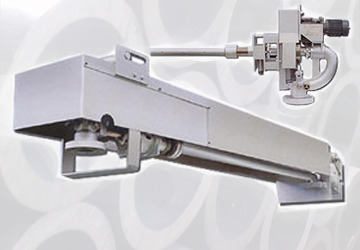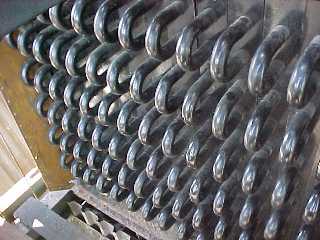Your boiler tube decisions are critical when building the most efficient boiler possible. The boiler type, pressure specifications, tube material, and joint construction of boiler tubes can make the difference between a well-performing boiler and one that doesn’t meet your expectations.
At Industrial Boilers of America, we specialize in creating the highest quality products for your boiler needs. Whether you need replacement tubing for an existing boiler or a ground-up solution for your industrial application, our team of highly trained engineers has your boiler answers.
In this post, we will look into the different boiler tube types, the pros and cons of their construction, and which tube fits your application.
Fire Tube Vs. Water Tube Boilers
We commonly break tube-based boilers into two categories: fire and water tubes. The primary difference between the two types is how the boiler system heats water before converting it into steam energy.
Fire Tube Boilers
Fire tube boilers work by burning coal, natural gas, oil, or biomass in the boiler’s combustion chamber. From there, the heated gases created by the fire travel inside the boiler pipes through an area filled with water. As the boiler tubes heat up, the water inside the chamber produces steam used to generate energy.
This boiler type is known for its simplicity and easy maintenance in small to medium-sized industrial applications. However, the drawback of this simple design is less efficiency compared to water tube boilers.
Water Tube Boilers
In contrast, water tube boilers contain the water inside of the boiler tubes themselves. These tubes are integrated into the combustion chamber, and the water is converted into steam directly inside the lines during combustion. The water vapor travels from there into a steam drum above the boiler before distributing its energy.
These boilers are more efficient than the fire tube variety and are better suited for high-pressure applications. Operations looking for large-scale boiler systems to generate power, process chemicals, or other demanding processes often rely on water tube boilers.
Materials Matter in Boiler Tube Construction
When choosing the suitable material for boiler tubes, it is crucial to determine your boiler’s potential pressure.
Medium-pressure boilers — fire-tube boilers — typically produce 350 PSI or less and require pipes that handle moderate pressure. On the other hand, high-pressure boilers — water-tube boilers — require tubes to withstand nearly ten times the force of fire tubes, with pressures often exceeding 3,000 PSI.
You must also consider your environment when selecting boiler tubes for industrial projects. Factors such as extreme temperature and exposure to corrosive materials impact the longevity of tubing. For example, a medium-pressure boiler in a coastal region may require different tubing than one further inland if it utilizes seawater as the water supply.
Carbon Steel Boiler Tubes
Carbon steel tubes are a cost-effective option for fire-tube boilers and other low to medium-pressure uses. These pipes are composed of iron and carbon and require less manufacturing than higher-pressure alternatives like stainless steel. The result is a less expensive yet reliable option for many projects.
One drawback to carbon steel is the material’s potential to wear from corrosive materials. The alloy is also more prone to rusting and may not be the best option for projects with harsher water composition or chemical exposure.
Stainless Steel Boiler Tubes
Stainless boiler tubes are the perfect solution if your project requires high-pressure tubing or contains a water-tube boiler. Stainless steel is an alloy containing iron, nickel, chromium, and other elements that increase strength and corrosion resistance in the tubing. While these boiler tubes tend to be more expensive, their increased durability is well worth the price.
Stainless steel tubing also has varying degrees of corrosion resistance, durability, and magnetic properties. Depending on pressure levels, chemical exposure, and other factors, stainless steel alloys can be tailored to your unique needs.
Choose Industrial Boilers America for Your Boiler Tube Needs
At Industrial Boilers America, we are a leading supplier of seamless carbon steel and stainless steel boiler tubes for various applications. Our tubing meets the highest ASME Standards to ensure you have the proper tubing for your application.
We provide both high-quality Nippon Sumitomo — a manufacturer of boiler tubes and pipes since 1912 — boiler pipes and exceptional stainless steel tubes for medium-pressure and high-pressure applications.
If you are interested in our products, contact us today to request a quote. Industrial Boilers America has over 20 years of experience designing, deploying, and manufacturing the highest quality boiler products and is here to serve you.


